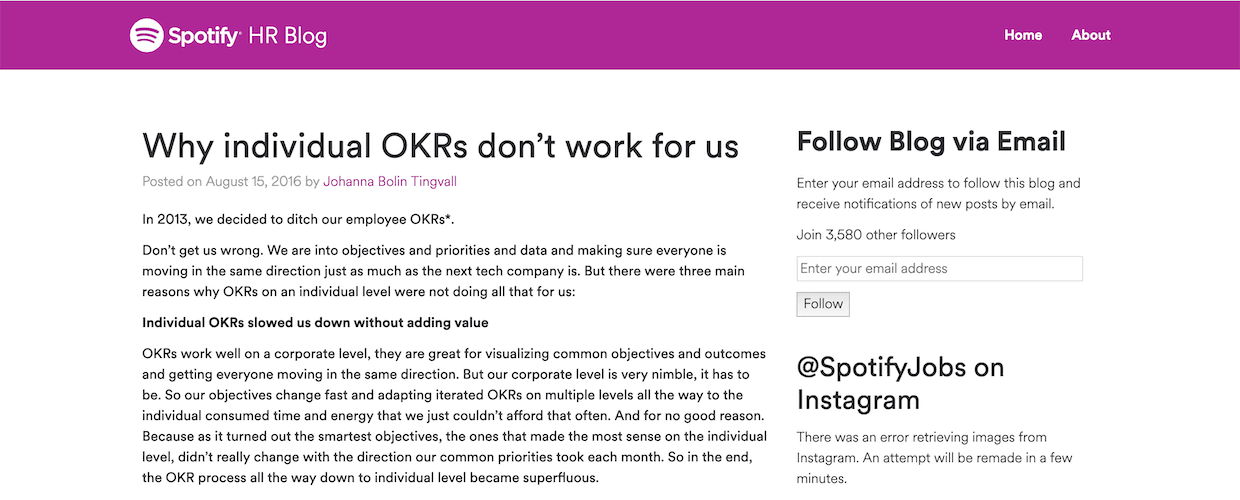I came across this story on Spotify’s website where there explain why they have stopped using Individual or Personal OKRs. Here’s what I took out from their refreshingly open and honest account of their OKR experiences.
Company & Team OKRs work brilliantly for Spotify
OKRs at the company level allow Spotify to set out the priorities for the upcoming period. Teams can then align their OKRs around these, and plan how they are going to execute and deliver.
Setting OKRs at this level is a relatively efficient and lightweight process. There won’t be huge numbers of hours spent debating what the OKRs should be. As this cascades down to potentially every employee, the overhead on managers and their reportees increases due the the volume of OKRs needed at that level.
The question then becomes, do OKRs at the Individual level increase our ability to achieve our Company and Team OKRs? Or on balance, do we feel they are not useful?
Spotify have said that due to the speed and agility they are required to move at, they don’t feel they are on balance something they want to implement.
Goal Setting vs Goal Delivery
There can be no doubt that goals setting and more specifically OKRs are great for improving company performance. Goals define your priorities, the Objectives and meaningful metrics or KPIs that represent that Objectives achievement, the Key Results, and the level of achievement that is required.
Arguing whether Goal Setting or Goal Delivery is more important is like arguing whether the Chicken or the Egg came first. They are co-dependent. Which is what is behind the Spotify decision, and why ZOKRI has used the agile working methodology and created a Kanban board for aligned Initiatives that are Active, Up Next, Not Yet Started, Complete, Paused and Abandoned. At any moment you can see what the goal is and how teams are going about achieving them. Importantly, what they are doing is agile enough to support more efficient goal achievement and faster growth.
Staying True To The Spirit Of OKRs
It’s important to realize OKR success comes from a commitment to their spirit. This means embracing transparent and meaningful measurement, being aligned and ambitious. After that you make OKRs work for you. You are not meant to be a slave to what ever you consider ‘best practice’ is. OKR guidelines are generalizations that are there to be adapted and made fit for your company this month, quarter or year.
Learn about the best ways to write and align OKRs for OKR Software with our OKR examples for different departments.

